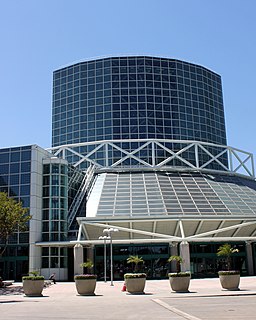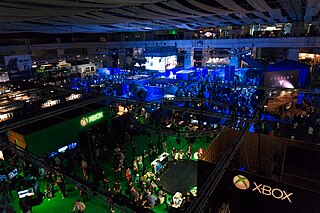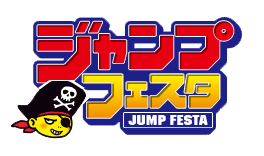 W
WThe Asia Game Show (亞洲遊戲展), also known as AGS, was an annual video game expo held at the Hong Kong Convention and Exhibition Centre in Hong Kong. It was organized by MP International and sponsored by The Chamber of H.K. Computer Industry (香港電腦商會) and commonly held in December. The 2011 Asia Game Show was held from December 23 to December 26, and it broke previous attendance records with over 450,000 visitors.
 W
WBlizzCon is an annual gaming convention held by Blizzard Entertainment to promote its major franchises including Warcraft, StarCraft, Diablo, Hearthstone, Heroes of the Storm, and Overwatch.
 W
WComic Con Ukraine is a speculative fiction entertainment annual exhibition and fan convention of computer and video games, TV series and comic movies in Ukraine. First convention was held alongside the Art Factory «Platform» in 2018.
 W
WComic-Con Russia is a speculative fiction entertainment annual exhibition and fan convention of computer and video games, TV series and comic movies in Russia, organized by the committee of the Russian Game Developers Conference and Bubble Comics. First convention was held alongside the 2014 IgroMir.
 W
WE3 is a trade event for the video game industry. The Entertainment Software Association (ESA) organizes and presents E3, which many developers, publishers, hardware and accessory manufacturers use to introduce and advertise upcoming games and game-related merchandise to retailers and to members of the press. E3 includes an exhibition floor for developers, publishers, and manufacturers to showcase titles and products for sale in the upcoming year. Before and during the event, publishers and hardware manufacturers usually hold press conferences to announce new games and products.
 W
WEB Games Expo, commonly known as EB Expo or EBX, is a video game trade fair / convention held annually in Australia. It is organised by EB Games Australia. It is used by many video game developers to show off their upcoming games and game-related hardware. Unlike E3, EB Expo allows members of the general public to attend. The most recent show was held in 2017 from 7–8 October.
 W
WEGX is a trade fair for video games organised by Gamer Network and held annually in the United Kingdom and Germany.
 W
WG-Star is an annual trade show for the video game industry presented by Korea Association of Game Industry and Busan IT Promotion Agency in November. Originally held in the Seoul Capital Area, it was relocated to Busan in 2009.
 W
WGame Retail Limited is a British video game retailer, owned by Frasers Group since June 2019.
 W
WGame Design Expo is an annual event in Vancouver, British Columbia, Canada for video game industry professionals and enthusiasts, hosted by Vancouver Film School's Game Design program. The inaugural event in 2007 was the first of its kind in Vancouver. Game Design Expo has presented such industry speakers as Ron Gilbert and Eric Zimmerman, and designers and producers from companies like Bungie, Activision, Electronic Arts, BioWare, and Mythic Entertainment.
 W
WGamercom is a yearly Brazilian video game convention organized by business executives Diego Oliveira and Wallace Thomaz, that is currently held in Florianópolis and is the main gaming convention in Southern Brazil.
 W
WGamescom is a trade fair for video games held annually at the Koelnmesse in Cologne, North Rhine-Westphalia, Germany. Since 2018, it has been organised by game – Verband der deutschen Games-Branche ; and before that, by the Bundesverband Interaktive Unterhaltungssoftware (BIU). It supersedes Games Convention, held in Leipzig, Saxony, Germany. Gamescom is used by many video game developers to exhibit upcoming games and game-related hardware.
 W
WGCA GAMES CONVENTION ASIA is a major video game exhibition in the Asia-Pacific region. It consists of a public exhibition and a conference where the various players in the video game industry network and interact with each other, while showcasing their latest products and services to the public. Games Convention Asia serves as an entryway for companies trying to enter the Asian interactive entertainment market.
 W
WThe history of Tokyo Game Show began with its creation in 1996 and has continued through the current expo in 2017. It has been held in Chiba, Japan, annually since 1996 by Computer Entertainment Supplier's Association (CESA) and the Nikkei Business Publications.
 W
WJump Festa is an annual party or exposition in Japan, all about manga and anime, sponsored by Shueisha, publisher of the various Jump anthologies which are Weekly Shōnen Jump, Jump Square, V Jump, Saikyō Jump and Shōnen Jump+. The exposition was started in 1999, and is held for two days in December with over 100,000 people attending every year. New manga, anime, films, games, and merchandise are introduced during this event. Manga artists of popular current and former Jump series are often on hand, and many of them have panels where they answer questions. The festival's mascot is named Kaizo-kun (KAIZOくん) and was designed by Akira Toriyama.
 W
WThe Midwest Gaming Classic (MGC) is an annual convention for all forms of electronic entertainment, including video games, arcade games and pinball, with a focus on retrogaming.
 W
WParis Games Week, or simply PGW, is a trade fair for video games held annually at the Paris expo Porte de Versailles in Paris, France. It is organised by SELL, a French organisation that promotes the interests of video game developers.
 W
WQuakeCon is a yearly convention held by ZeniMax Media to celebrate and promote the major franchises of id Software and other studios owned by ZeniMax. It includes a large, paid, bring-your-own-computer (BYOC) LAN party event with a competitive tournament held every year in Dallas, Texas, USA. The event, which is named after id Software's game Quake, sees thousands of gamers from all over the world attend every year to celebrate the company's gaming dynasty.
 W
WThe Russian Game Developers' Conference, or KRI, was an annual event for industry professionals devoted to game development, publishing and distribution in Russia and surrounding territories. The show also featured the presentation of the annual KRI awards, a professional game awards. Attendance at KRI was relatively compared with some of the better-known game developer conferences abroad. However, this was mainly attributed to the population densities in the enormous geographic range that the conference covered and the difficulties in transportation. Back then Russian distribution video game networks were often plagued by software pirates. Due to the spread of digital distribution and the adoption Russian anti-piracy legislation, KRI grew each year, having been able to provide accommodation for attendants from afar. KRI also helped to establish and entrench various anti-piracy measures.